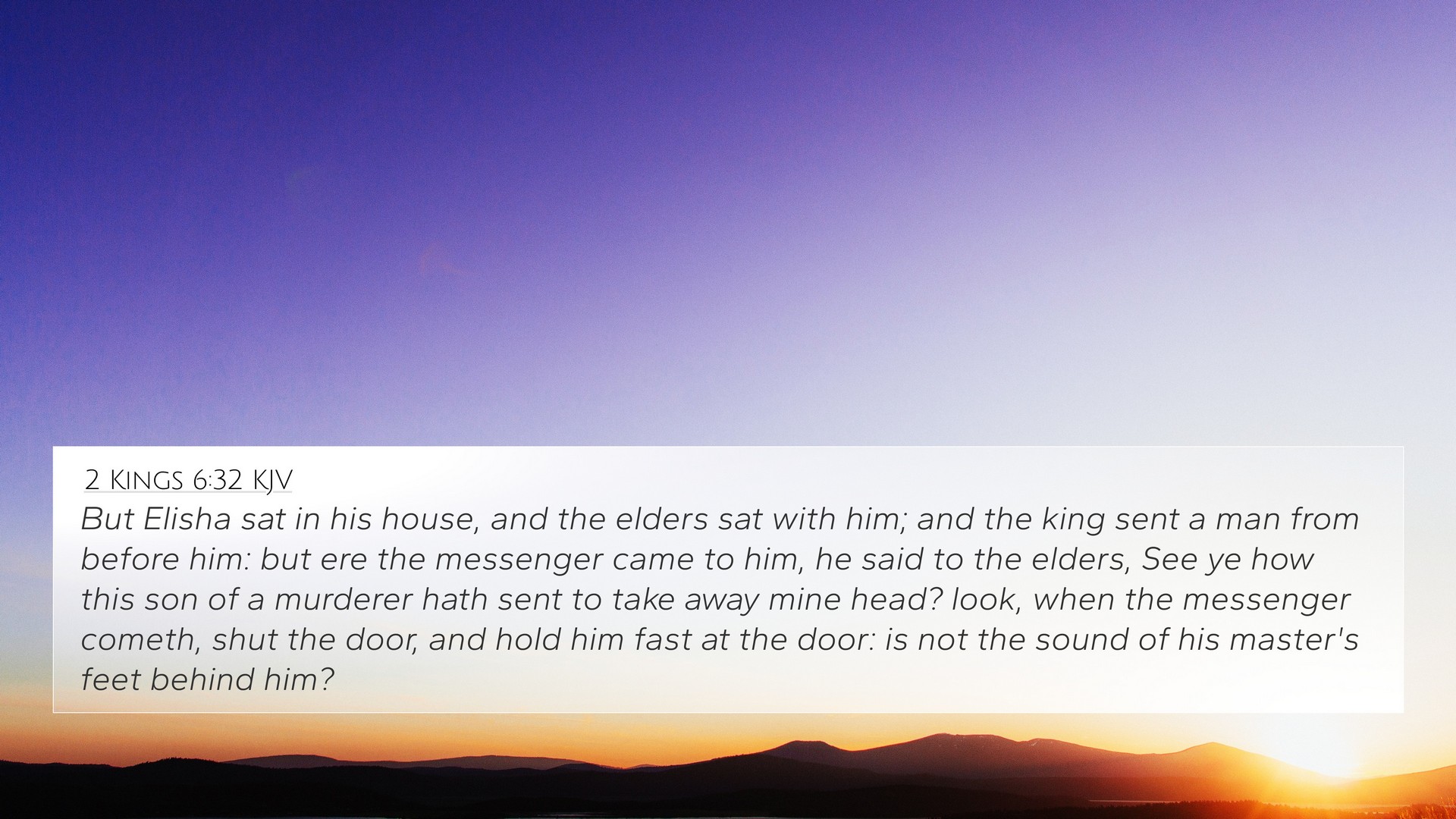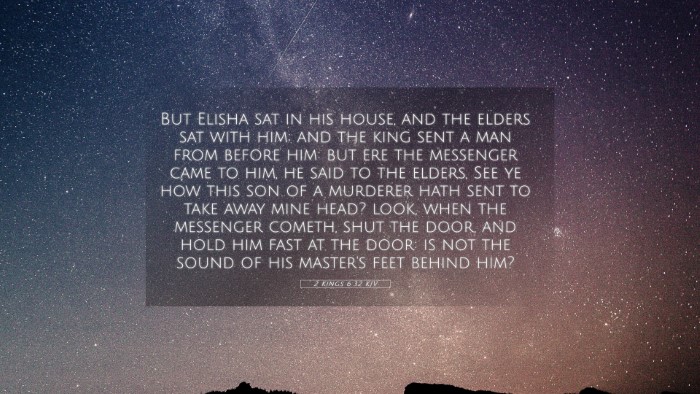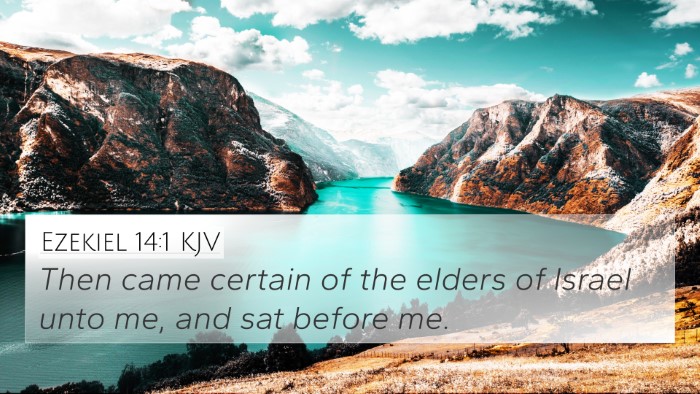This section features a detailed cross-reference designed to enrich your understanding of the Scriptures.
Below, you will find carefully selected verses that echo the themes and teachings related to 2 Kings 6:32 KJV. Click on any image to explore detailed analyses of related Bible verses and uncover deeper theological insights.
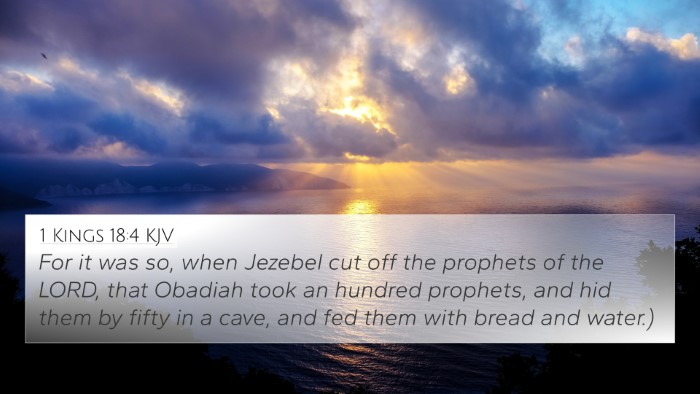 1 Kings 18:4 (KJV) »
1 Kings 18:4 (KJV) »
For it was so, when Jezebel cut off the prophets of the LORD, that Obadiah took an hundred prophets, and hid them by fifty in a cave, and fed them with bread and water.)
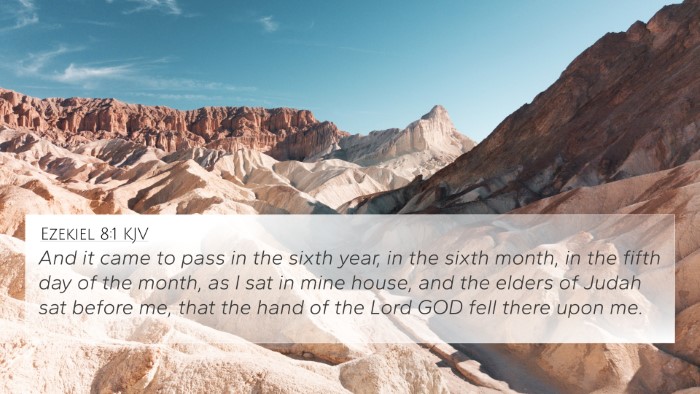 Ezekiel 8:1 (KJV) »
Ezekiel 8:1 (KJV) »
And it came to pass in the sixth year, in the sixth month, in the fifth day of the month, as I sat in mine house, and the elders of Judah sat before me, that the hand of the Lord GOD fell there upon me.
 Ezekiel 20:1 (KJV) »
Ezekiel 20:1 (KJV) »
And it came to pass in the seventh year, in the fifth month, the tenth day of the month, that certain of the elders of Israel came to enquire of the LORD, and sat before me.
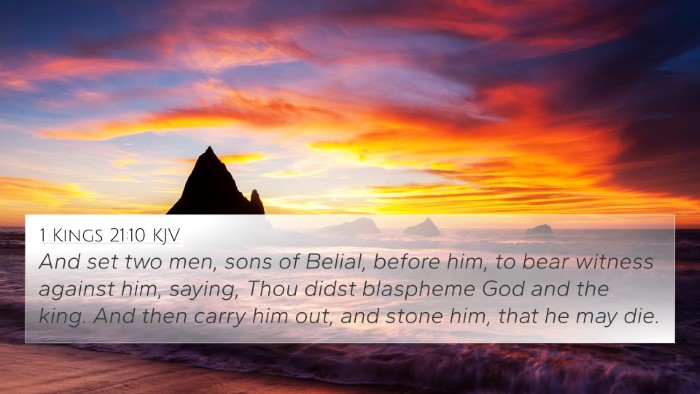 1 Kings 21:10 (KJV) »
1 Kings 21:10 (KJV) »
And set two men, sons of Belial, before him, to bear witness against him, saying, Thou didst blaspheme God and the king. And then carry him out, and stone him, that he may die.
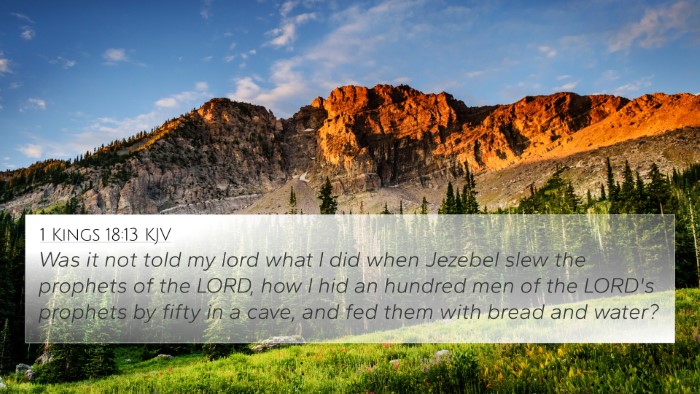 1 Kings 18:13 (KJV) »
1 Kings 18:13 (KJV) »
Was it not told my lord what I did when Jezebel slew the prophets of the LORD, how I hid an hundred men of the LORD's prophets by fifty in a cave, and fed them with bread and water?
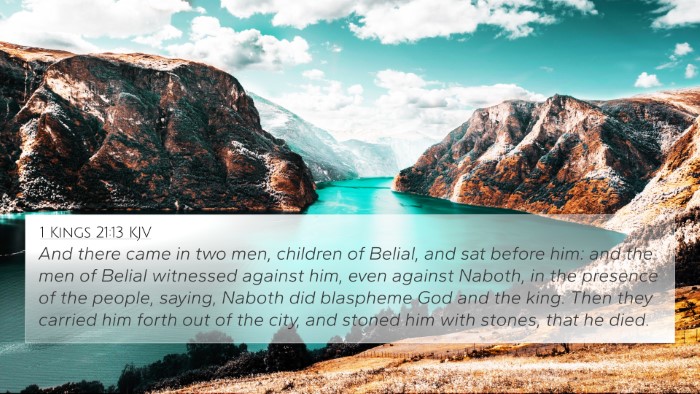 1 Kings 21:13 (KJV) »
1 Kings 21:13 (KJV) »
And there came in two men, children of Belial, and sat before him: and the men of Belial witnessed against him, even against Naboth, in the presence of the people, saying, Naboth did blaspheme God and the king. Then they carried him forth out of the city, and stoned him with stones, that he died.
 Ezekiel 33:31 (KJV) »
Ezekiel 33:31 (KJV) »
And they come unto thee as the people cometh, and they sit before thee as my people, and they hear thy words, but they will not do them: for with their mouth they shew much love, but their heart goeth after their covetousness.
 2 Kings 5:26 (KJV) »
2 Kings 5:26 (KJV) »
And he said unto him, Went not mine heart with thee, when the man turned again from his chariot to meet thee? Is it a time to receive money, and to receive garments, and oliveyards, and vineyards, and sheep, and oxen, and menservants, and maidservants?
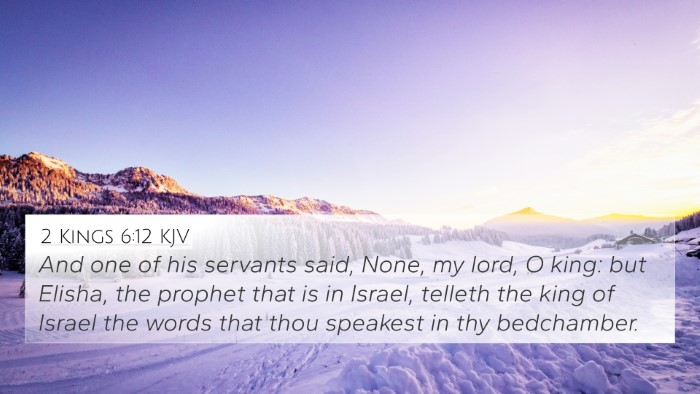 2 Kings 6:12 (KJV) »
2 Kings 6:12 (KJV) »
And one of his servants said, None, my lord, O king: but Elisha, the prophet that is in Israel, telleth the king of Israel the words that thou speakest in thy bedchamber.
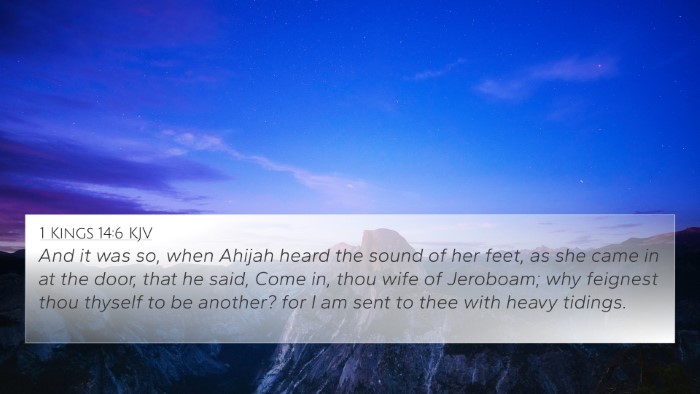 1 Kings 14:6 (KJV) »
1 Kings 14:6 (KJV) »
And it was so, when Ahijah heard the sound of her feet, as she came in at the door, that he said, Come in, thou wife of Jeroboam; why feignest thou thyself to be another? for I am sent to thee with heavy tidings.
 Luke 13:32 (KJV) »
Luke 13:32 (KJV) »
And he said unto them, Go ye, and tell that fox, Behold, I cast out devils, and I do cures to day and to morrow, and the third day I shall be perfected.
